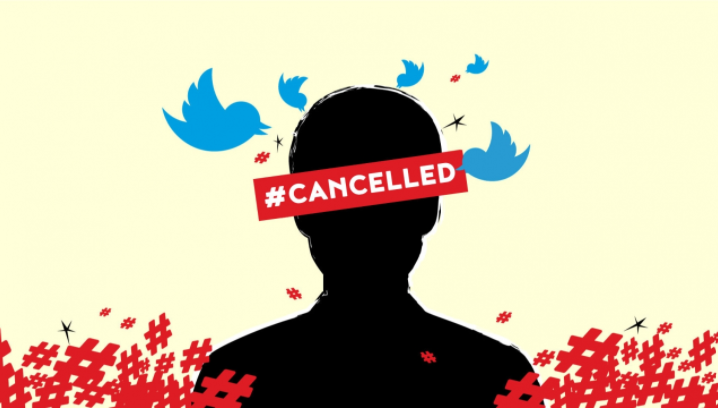Unverified: A look into the rise of Cancel Culture and its impacts on those who have been called out
By Naomi Ngondi
The year is 2019 and the world is watching as multiple women recount their encounters with Robert Kelly, most known as R Kelly, established singer, songwriter and a well-recognised icon within the Black community. I create a space for these stories in my head, suspending disbelief that someone whose music I have grown up with and whose melodies were often laced with joyous and positive messages has in fact, been a violent abuser for the majority of his adult life.
I heard about #SurvivingRKelly on Twitter and soon after the 6 part documentary was released, received and digested by the public #SurvivingRKelly soon became #CancelRKelly. Cancel R Kelly, well okay I thought, but what does that even mean? Thinking literally, I wondered how we could cancel a human being let alone one of the most well-recognised musical icons.
This blog isn't about the now convicted singer, rather, this is the first in the series of posts that will look into who gets to ‘cancel’, the impact that being ‘cancelled’ has and what happens when the hashtag is no longer trending. In this post, I explore the origins and the rise of cancel culture.

It’s difficult to get a universal definition on what cancel culture is. On one hand Cambridge dictionary describes it as “a way of behaving in a society or group, especially on social media in which it is common to completely reject and stop supporting someone because they have said or done something that offends you” while Webster defines it as “mass withdrawal of support of a public figure or celebrity who have done things that are socially unacceptable”.
Long before the term was mainstream, it was widely used as a common phrase on Black Twitter as part of AAVE (African American Vernacular English). A sister term of ‘Woke’ also originally from AAVE, it was used during social political discourse to call out public figures or celebrities within the Black community that had displayed unsavoury behaviours or shady patterns. It was positioned as the most tangible action that regular folk could take to hold those accountable for things they would have otherwise gotten away with because of their social status.
The domino effect that followed after the success of #CancelRKelly allowed for more victims to share their stories about Hollywood predators. Pandora's box was virtually opened on our Twitter feeds but its contents were littered across Hollywood's opulent boulevards. Next, to introduce itself onto the timeline was the Me Too movement. Founded by Tarana Burke in 2006 its intention was to assist survivors of sexual violence especially, women of colour. Beyond their generic acceptance speeches, Me Too gave us a chance to learn more about coveted directors such as Harvey Weinstein who had years worth of allegations for sexual misconduct. More and more household names were now being called to be cancelled. Thus taking it from a specific corner of the internet to a mainstream movement but its intended use would soon become distorted.
In the run up to the 2016 US elections, Donald Trump would use the term ‘snowflake’ in a derogatory manner against his counterparts to enforce the narrative that they were too soft and sensitive for the modern political climate. Fast forward four years later as we welcomed a new decade with a pandemic and global protests in support of Black Lives Matter. It was more important than ever to display allyship. To stand with marginalised victims and cancel the trending person or business in question. However, in the background, right leaning media was now conflating cancel culture with ‘snowflake’ culture, a term now described as “the generation of people who became adults in or after the 2010’s, viewed as being less resilient and more prone to taking offence than previous generations” by the Collins English Dictionary. Using hyperbolic examples of some ‘cancelled’ figures, right leaning media would question why this generation (specifically Gen-Z but also including Millennials) were disrupting society by asking that anyone with a chequered past be called to the podium.
As this narrative grew, the root intention of to cancel culture, which was to speak on injustices most occurred in marginalised communities was now slowly becoming a meme. With each virtual boundary that movement crossed the less and less it became effective. In the next part of this series I will explore the impact of cancel culture. Were those who were cancelled truly held accountable and can we see effects of this accountability in their careers today.

